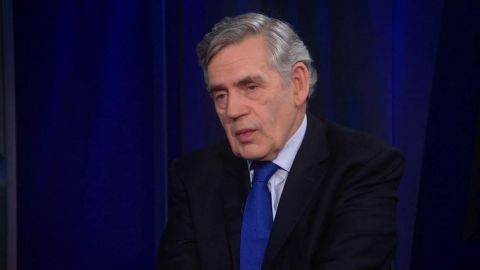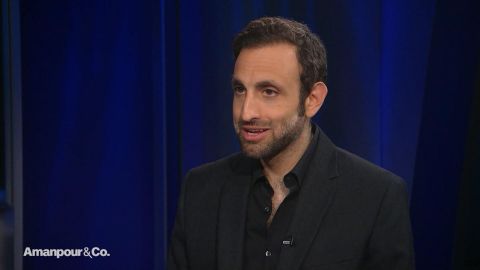Read Transcript EXPAND
CHRISTIANE AMANPOUR: How does a new prime minister deal with this kind of thing?
BROWN: It’s very interesting because the minute I took over in Downing Street in 2007 we had the Glasgow at London bombing. So, you can prepare, you can look at what you want to do, but events do take over. Now, I think, Boris Johnson should be very much aware that the background to this is the failure of the American administration to stay with the Iranian deal. And I think the background to this is also that Britain must remain solid with our European partners. But what he can do to persuade President Trump to look again at the conditions in which he might sign a deal with Iran is mightily very important. I am told whether it’s right or wrong that Iran would accept tougher conditions, that they would move to high level of inspection earlier, if that were something that America would press for. And this may be the basis on which this deal can be solved. Now, the problem is that we’re dealing with an explosive situation in the as a whole. And so, it does seem to me very important that President Trump, in the light of all these incidents, looks at whether there can be a solid basis for a deal with Iran or whether he and the Republicans are going to use this as an election issue. I think it really comes comments back to all of this. So, whatever is happening between Britain and Iran, the background, the context is something that’s got to be sorted out at some point and hopefully soon.
AMANPOUR: What does it say in a Brexit situation? Where do you think Boris Johnson would put British interests? And I ask this because it might seem like an obvious question. But he did throw under the bus a key British diplomat in light of the fact that the president of the United States was upset by this.
BROWN: Well, I think Boris Johnson is under a huge amount of pressure from his own Brexiteers, those people who are very hardline anti-European, and they would prefer to see an even stronger relationship with the United States even if it’s based on effectively taking instructions from President Trump. So, I think he is under a great deal of pressure in that respect. But I do feel that he is going to have to show that he is also independent, and I think this will be the test of the first few days. For example, you know, when you become prime minister, you have calls. They go in a row. Who do you call first? Who takes the call first? Is it going to be President Trump or is it Angela Merkel? Is it Emmanuel [13:05:00] Macron? And I think he’s making decisions right from the word go about what his priorities are in foreign policy. Clearly, he has to get a deal on Brexit or try to get a deal on Brexit or get a resolution of Brexit. But, obviously, the American relationship is incredibly important and he has got to work out in which areas is he going to agree with President Trump and which areas is he going to be at odds with him. And clearly, the British policy has been while wanting a good relationship with America, to stick with the Europeans on Iran and I hope that that will be the position that he takes to try to press the Americans that we must try and find a way forward.
About This Episode EXPAND
In an exclusive interview, Christiane Amanpour speaks to former British Prime Minister Gordon Brown, as Britain readies itself for a new Prime Minister and what that could mean for Brexit and unity within the nation. Chris Arnade joins Michel Martin to discuss his new book, “Dignity.” Tim Samuels argues for a new way of dealing with a society plagued by toxic masculinity.
LEARN MORE


